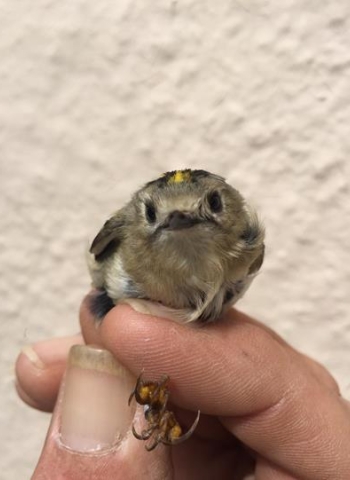
Iberian Chiffchaffs on passage
Iberian Chiffchaffs Phylloscopus ibericus are now passing through the area of the Straits on their way to their winter quarters in Africa.
This species has a different phenology to the Common Chiffchaff Phylloscopus collybita which arrives in southern Iberia around mid-October and November, and spends the winter months in Spain and Gibraltar, before returning to their breeding grounds in central and northern countries in Europe during February and March, coinciding with the return of Iberian Chiffchaffs from Africa. Therefore late August and September is a good time to see the Iberian Chiffchaffs, as they will not be confused with their similar species. In spring , this is a different matter, and even when birds are caught and ringed, differentiating them in the hand can be very difficult. The easiest way to tell is by comparing their distinct calls. The Iberian Chiffchaff has a downward seewoo, whereas the Common Chiffchaff has an upward sounding swooeet. Calls can be heard on the website Xeno-canto at http://www.xeno-canto.org/ . Iberian Chiffchaff:- http://www.xeno-canto.org/explore?query=Iberian+Chiffchaff and Common Chiffchaff:- http://www.xeno-canto.org/explore?query=Common+Chiffchaff .
This September Frances Hurley took some good photographs of the Iberian Chiffchaffs at the top of Mediterranean Steps..
Photographs: Frances Hurley


